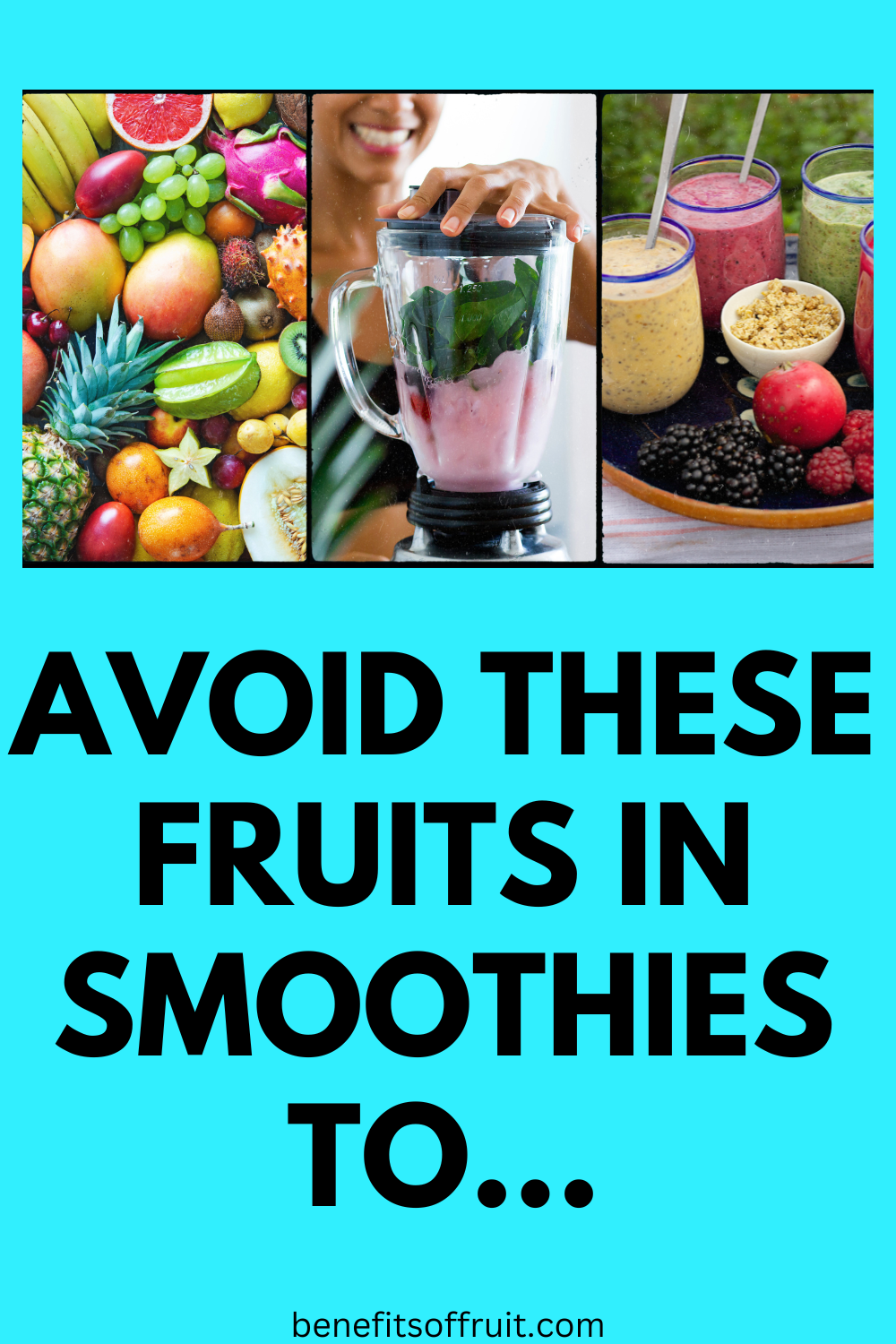Smoothies are a popular choice for a quick, nutritious meal or snack, enjoyed by health enthusiasts around the world. While they can be packed with vitamins, minerals, and other beneficial nutrients, not all fruits are created equal when it comes to blending them into a smoothie. Some fruits, although healthy in their natural form, may not necessarily be the best choice for everyone when used in smoothies due to high sugar content, caloric density, or other factors. This article aims to explore various fruits that might be best avoided in smoothies, especially for those with specific health concerns or dietary preferences.
1. Understanding Fruit Sugars
Fruits are naturally sweet, containing sugars such as fructose, glucose, and sucrose. While these sugars are natural, their high concentration can significantly impact blood sugar levels. For instance, bananas, mangoes, and grapes are known for their high sugar content. Consuming these fruits in smoothies can lead to a rapid increase in blood sugar, which might not be ideal for individuals with diabetes or those trying to manage their weight. A single banana can contain up to 14 grams of sugar, which, when combined with other sweet fruits, can make a smoothie more of a sugary treat than a healthy meal.
2. High-Calorie Fruits
While fruits are nutritious, their caloric content can be surprisingly high. Avocados and coconuts are prime examples of high-calorie fruits, with avocados containing about 240 calories each and coconuts even more, depending on their size. These fruits are beneficial due to their healthy fats and other nutrients; however, their high caloric content can contribute to weight gain if consumed in large quantities in smoothies, especially for those who do not burn a lot of calories daily.
3. Fruits with High Pesticide Residue
The pesticide residue on fruits is a significant concern for many health-conscious individuals. According to the Environmental Working Group, fruits like strawberries and apples top the list of produce with the highest pesticide residue. Regular consumption of these can introduce a considerable amount of chemicals into the body, potentially leading to health risks over time. Opting for organic versions of these fruits or avoiding them when organic is not available can be a safer choice for smoothie enthusiasts.
4. Oxalate-rich Fruits
Oxalates are organic compounds found in many foods, including fruits like starfruit and blackberries. While they are usually harmless, in individuals with a predisposition to kidney stones, a high intake of oxalates can contribute to stone formation. These fruits should be consumed in moderation, and individuals prone to kidney issues should consider consulting with a healthcare provider before including high-oxalate fruits in their smoothies.
5. Fruits That Can Cause Allergic Reactions
Fruit allergies are another consideration when making smoothies. Fruits such as kiwi and pineapple are known to cause allergic reactions in some people, which can range from mild itching to severe anaphylactic reactions. Anyone with known fruit allergies should avoid these fruits in smoothies. It’s also wise to be cautious when introducing new fruits into your diet and to do so one at a time to monitor for any adverse reactions.
6. Acidic Fruits
The acidity of certain fruits can also pose problems. Fruits like oranges and lemons are highly acidic, which can affect those with sensitive stomachs or gastroesophageal reflux disease (GERD). Moreover, the acid content can harm dental health, eroding tooth enamel over time. For those with such concerns, opting for less acidic fruits or balancing acidic fruits with alkaline ingredients in smoothies can help mitigate these issues.
7. Fruits with Medicinal Interactions
Some fruits can interact with medications, impacting their effectiveness. For example, grapefruit is known for its ability to interfere with enzymes that metabolize certain medications, such as statins used to lower cholesterol. This interaction can lead to higher levels of the drug in the bloodstream, potentially causing serious side effects. It is crucial for individuals on medications to consult their healthcare provider about which fruits are safe to include in their smoothies.
Conclusion
Choosing the right fruits for smoothies is not just about taste but also about health benefits and potential risks. While fruits are an essential part of a balanced diet, being mindful of their sugar content, caloric density, pesticide residue, and other factors is crucial. By considering personal health conditions and making informed choices, you can enjoy delicious and healthy smoothies that fit your dietary needs.
